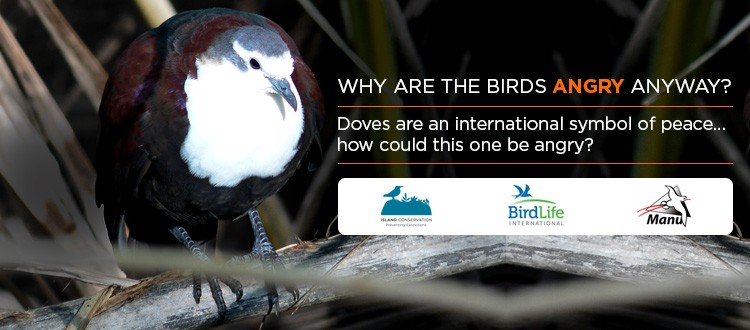December 4, 2024
The Ebiil Society: Champions of Palau
Ann Singeo, founder of our partner organization the Ebiil Society, shares her vision for a thriving Palau and a flourishing world of indigenous science!
We use cookies to help you navigate efficiently and perform certain functions. You will find detailed information about all cookies under each consent category below.
The cookies that are categorized as "Necessary" are stored on your browser as they are essential for enabling the basic functionalities of the site. ...
Necessary cookies are required to enable the basic features of this site, such as providing secure log-in or adjusting your consent preferences. These cookies do not store any personally identifiable data.
Functional cookies help perform certain functionalities like sharing the content of the website on social media platforms, collecting feedback, and other third-party features.
Analytical cookies are used to understand how visitors interact with the website. These cookies help provide information on metrics such as the number of visitors, bounce rate, traffic source, etc.
Performance cookies are used to understand and analyze the key performance indexes of the website which helps in delivering a better user experience for the visitors.
Advertisement cookies are used to provide visitors with customized advertisements based on the pages you visited previously and to analyze the effectiveness of the ad campaigns.
Our new online shop is live!

Have you ever actually met an Angry Bird? I have, but I’m not sure I knew it at the time.
The year was 2007, and I was undertaking field work on Vahanga Atoll in French Polynesia. This is where I met one of the angriest birds in the world, the only Polynesian Ground-dove (Alopecoenas erythropterus), recorded at that time, on the atoll.
But doves are an international symbol of peace…how could this one be angry?
It’s quite simple really; this Critically Endangered dove is one of the world’s rarest birds. In fact, it is estimated that there are less than 100 remaining on the entire planet (some say less than 50) and they’re all angry; fuming mad; downright livid; and rightly so.
Damaging, invasive rats were introduced to Vahanga (and many other islands in French Polynesia) decades ago and have since ravaged the native populations of the Critically Endangered Polynesian Ground-dove and the Endangered Tuamotu Sandpiper (Prosobonia parvirostris), or the Tutururu and the Titi as they are referred to locally. You’d probably be angry too, if some interlopers moved into your home and started eating your eggs, chicks, and food.
When I met this particular angry bird, I did not realize how special and rare (or angry) it was at the time, or for that matter, how intertwined our fates would become.
This is why I am so excited that Island Conservation is part of a partnership with BirdLife International and the Société d’Ornithologie de Polynésie (SOP) Manu to intervene on behalf of these rare birds by removing the damaging invasive species from Vahanga and five other islands in French Polynesia over the next few weeks. After years of planning and partnership building, the eradication is about to commence. Last month, we helped pack more than 250 tonnes of equipment on a cargo ship that is en route to these remote and largely unpopulated islands. As you read this, I, along with a team of 30 other scientists and experts, are en route as well. With a lot of hard work, and bit of good fortune, these upcoming conservation actions offer hope for turning these angry birds into happy ones that can once again thrive on predator-free islands.
But wait, this story of hope gets even better. You can become a part of this incredible expedition today.
Check out other journal entries we think you might be interested in.
Notifications